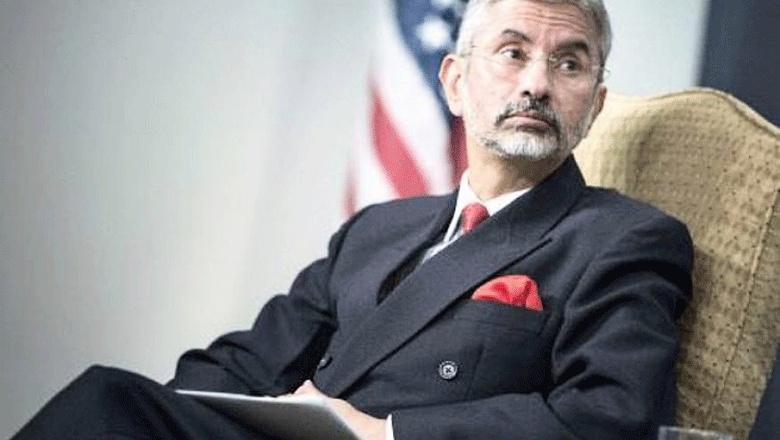
views
New Delhi: External affairs minister S Jaishankar has defended the restrictions on internet and telephone connectivity in Jammu and Kashmir, saying the steps were needed to prevent communications between “terrorists and their masters”.
Jaishankar, in an interview with Politico newspaper in Brussels, said: “It wasn’t possible to stop communications between militants without an impact on all of Kashmir. How do I cut off communication between the terrorists and their masters on the one hand, but keep the internet open for other people? I would be delighted to know.”
In Brussels after a visit to Russia, Poland, and Hungary, the Union minister also ruled out talks with Pakistan till the neighbour checked terrorism emanating from its soil.
Rejecting Pakistan Prime Minister Imran Khan’s offer of “conditional talks” over the Kashmir issue, Jaishankar said India would not be able to think of dialogue when Pakistan “openly practices terrorism".
Khan, in an editorial published in New York Times, had offered to hold talks if New Delhi reverses its decisions to repeal Article 370, which granted special status to Jammu and Kashmir, and divide the state into two Union Territories — J&K and Ladakh. He had also highlighted the “nuclear shadow” hovering over South Asia as the impetus to begin discussions.
However, Jaishankar ruled out talks with Pakistan, saying: “Terrorism is not something that is being conducted in the dark corners of Pakistan. It’s done in broad daylight.”
The foreign minister also dismissed reports of shortages of medicines and essential items in Kashmir, adding that in the coming days, “you will see an easing up progressively", which involves a reduction in the number of extra security forces.
Tensions between India and Pakistan have been high since the Narendra Modi government decided to abrogate Article 370. Pakistan, in retaliation, suspended trade ties with India and also expelled Indian High Commissioner Ajay Bisaria. It stopped services of the Samjhauta Express and later knocked on the doors of the United Nations Security Council (UNSC) in a bid to internationalise the issue.
However, it did not get much success as the international community concluded that the Kashmir issue was a dispute which must be resolved bilaterally. Pakistan has since been trying to garner attention towards alleged human rights violations in Kashmir. India, on the other hand, has turned down offers of mediation — including from US President Donald Trump — saying Kashmir is an internal issue.




















Comments
0 comment